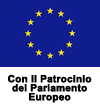NUOVA FRONTEX IN DIFESA DELLE FRONTIERE E DELLE COSTE EUROPEE.
Autore: Dott.ssa Laura De Rose, Vice Direttore Foroeuropa
Il 20 febbraio scorso, il Consiglio dell’UE ha approvato la sua posizione per i negoziati con il Parlamento Europeo sul nuovo regolamento FRONTEX, che farà di quest’ultima il corpo di guardia europeo per la difesa delle frontiere e delle coste dell’Unione Europea. Si tratta di una tappa importante verso l’approvazione definitiva, viste le diverse posizioni espresse dagli Stati Membri su questo progetto almeno fino a poche settimane fa. Come meglio precisato nella nota che segue, la nuova FRONTEX avrà poteri esecutivi e lavorerà in coordinamento stretto con gli Stati Membri, non solo per proteggere le frontiere ma anche per agevolare le procedure di ritorno degli immigrati non aventi titolo nei paesi d’origine. Il primo nucleo del corpo di guardia dell’UE dovrebbe essere costituito a partire dal gennaio 2021.
Maggiori informazioni sulla posizione del Consiglio, nonché l’ultima versione del Regolamento FRONTEX possono trovarsi sul sito: https://www.consilium.europa.eu/en/press/press-releases/2019/02/20/european-border-and-coast-guard-council-agrees-negotiating-position/
----------------------------
EUROPEAN BORDER AND COAST GUARD (FRONTEX): ON 20 FEBRUARY 2019, THE COUNCIL AGREES NEGOTIATING POSITION
On 12 September 2018, the Commission proposed an updated mandate for the European Border and Coast Guard, with the aim of further improving the control of the EU's external borders.
On 20 February 2019, EU ambassadors agreed to the Council's negotiating position on a regulation on the European Border and Coast Guard (FRONTEX). On the basis of this mandate, the Romanian Presidency of the Council will start negotiations with the European Parliament.
Such an agreement is another step on the road towards a more efficient control of the EU's external borders. A stronger FRONTEX agency will provide the Union and the competent national authorities with new tools to face any current and future challenges to the Schengen area.
FRONTEX is being strengthened in terms of staff and technical equipment. It is also being given a broader mandate to support Member States' activities on border protection, return and cooperation with third countries. The proposed new rules will incorporate the European Border Surveillance System (EUROSUR) into the FRONTEX framework, to improve its functioning.
Standing corps of border and coast guards and return experts
To ensure a coherent management of the external borders and to be able to respond to situations of crisis a standing corps will be set up, with up to 10 000 operational staff by 2027. This standing corps will be composed of operational staff members from FRONTEX and from the member states under long or short time secondments.
Deployments of the standing corps will take place as of 1 January 2021. To be able to adapt to future situations and capabilities, 30 months after this, the European Commission will carry out a mid-term review on the overall number and composition of the standing corps. By March 2024, and following the discussion of the review by the Council and the European Parliament, the Commission will present proposals to confirm or amend the number, composition and member states' contributions to the corps.
Member States will retain primary responsibility for the management of their borders, with the agency and its staff providing technical and operational assistance subject to the agreement of the Member States concerned. Under the proposed new rules, staff of the standing corps deployed to a Member State will be able to exercise some executive powers to carry out border controls or return tasks, always subject to the authorisation of the host member state, including the use of force and weapons.
Returns and cooperation with third countries
The Council already agreed a partial negotiating position on the provisions related to the enhanced role of FRONTEX in return and cooperation with third countries in December 2018.
More information on the aforementioned developments and the latest text of the new regulation on FRONTEX may be accessed by clicking on:


